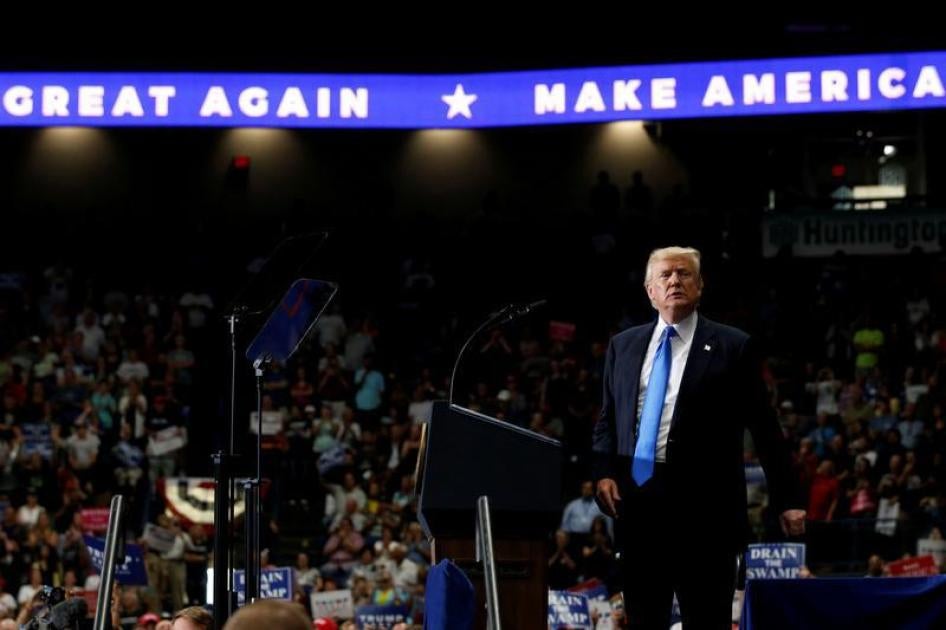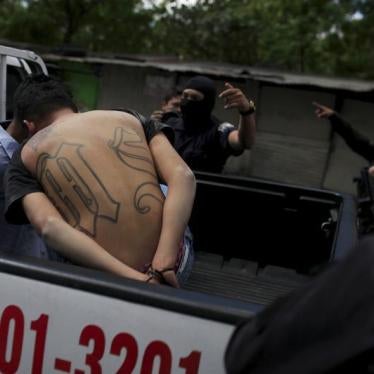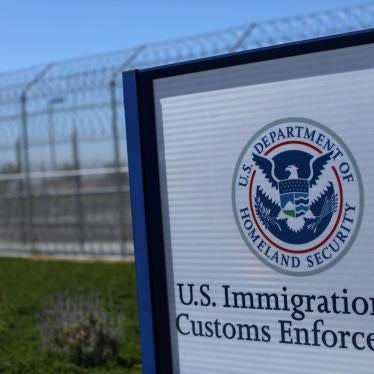At a “Make America Great Again” rally on Tuesday, US President Donald Trump revived his anti-immigrant campaign rhetoric, conjuring up lurid imagery of illegal immigrant gang members who he described as “animals” who will “take a young, beautiful girl” and “slice…and dice them.” He went on to trumpet that his administration is “cracking down hard on the foreign criminal gangs that have brought illegal drugs, violence, horrible bloodshed to peaceful neighborhoods all across our country.”
Trump isn’t just condemning gang violence. His words are part of a larger rhetoric that scapegoats immigrants as outsiders responsible for violent crime and deep societal problems. In this, he mirrors a tactic popular with abusive governments all over the world: From Venezuela to Pakistan, Human Rights Watch has documented the devastating impact of scapegoating foreigners to justify inhumane policies.
In the first six months of Trump’s term, Human Rights Watch has interviewed scores of people who have been deported and separated from their American families. None of them could be credibly described as a threat to public safety. Immigration and Customs Enforcement (ICE) under Trump has made clear it makes little distinction between people with no criminal records and dangerous gang members. ICE Director Thomas Homans even said, “We shouldn’t wait for them to become a criminal.”
But scapegoating immigrants as criminals-in-waiting is not only wrong but also counter-productive in that it is likely to endanger, not enhance, public safety. Numerous local law enforcement officials have actively resisted the administration’s efforts to involve them in immigration enforcement. They say they need immigrant communities to trust the police – otherwise, immigrants may not report crimes.
Even MS-13, the transnational gang Trump referenced in his speech, is not simply a problem brought by foreigners. The gang was formed in the US – specifically, Los Angeles in the 1980s – and spread throughout the US and Central America as its members, mostly from El Salvador, were deported. Many Central Americans who fled to the US in recent years left their countries because of their fear of this gang. Now, they find themselves terrorized by MS-13 in the US.
If Trump wants to be serious about protecting the US from the dangers of MS-13, he should institute policies that encourage unauthorized immigrants to cooperate with law enforcement, rather than force them further into the shadows.
|
Dispatches
Trump’s Dangerous Scapegoating of Immigrants
President’s Rhetoric Could Make US Communities Less Safe
Your tax deductible gift can help stop human rights violations and save lives around the world.
Region / Country
Most Viewed
-
February 20, 2026
Abuses in Cameroon After US Deports Third-Country Nationals

-
February 25, 2026
Jailed Critic in Rwanda Faces 30-Year Sentence

-
November 25, 2019
A Dirty Investment

-
February 24, 2026
Iran: Tsunami of Arbitrary Arrests, Enforced Disappearances

-
June 3, 2025
“They’re Ruining People’s Lives”





